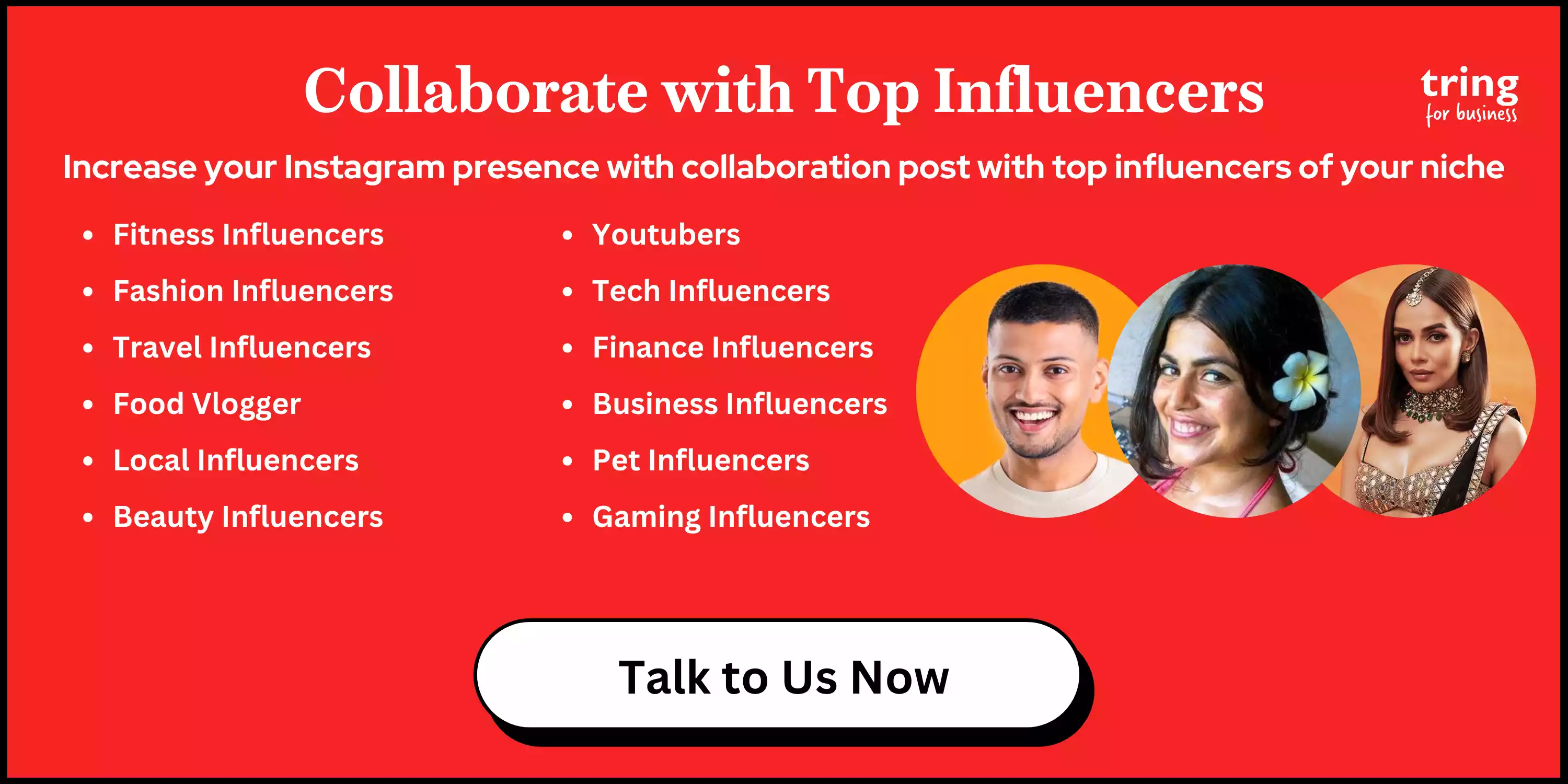The Psychology Behind Influencer Marketing
Influencer marketing has revolutionized the way brands engage with consumers, using the power of social proof, trust, and authenticity. Understanding the psychological factors that make influencer marketing effective is key to its success. Below, we dive into the various psychological aspects of the impact of influencer marketing on consumers' attitudes.
1. Trust and Relatability of Influencers
One of the key reasons influencer marketing is so effective is that influencers are seen as relatable and trustworthy by their followers. Unlike traditional celebrities, who often seem distant and unreachable, influencers tend to be everyday people who have built their followings by sharing genuine experiences and personal stories. This creates a strong sense of trust between influencers and their audiences, making their product endorsements more believable and compelling.
For example, a beauty influencer sharing their skincare routine feels authentic because it’s rooted in personal experience. Followers trust that the influencer genuinely uses the products they recommend, which leads to higher engagement and purchase conversions.
2. Social Proof and Its Influence on Consumer Choices
Social proof is another powerful psychological factor driving the success of influencer marketing. When consumers see influencers using a product, they assume it must be good, a phenomenon known as herd behavior. This concept is especially prevalent on social media, where the number of likes, comments, and shares reinforces the idea that a product is worth trying.
For instance, when an influencer posts about a particular fashion trend, their followers are more likely to adopt the trend, believing it to be socially validated. This domino effect can significantly influence consumer choices, making social proof a critical aspect of influencer marketing. The impact of influencer marketing on consumer behavior is huge!
3. Emotional Connection and Authenticity
Consumers are not just looking for products; they’re looking for emotional connections. Influencers excel at creating content that resonates emotionally with their followers. Whether it’s a heartfelt story or a personal journey, influencers create bonds that foster loyalty. This emotional connection, combined with authenticity, is a potent mix that influences buying decisions.
A fitness influencer, for example, might share their journey toward a healthier lifestyle, including the challenges they’ve faced. Followers who can relate to these struggles are more likely to trust the influencer’s product recommendations, whether it’s workout gear or supplements.
Do You Want to Promote Your Brand With Influencers?
![Collaborate with Top Influencers.png]()
The Perception of Influencers as Opinion Leaders
1. Role of Influencers in Shaping Trends
Influencers have become the new trendsetters in today’s digital world. Whether it’s fashion, beauty, fitness, or technology, influencers have a strong impact on what consumers consider “in” or “out.” Their ability to drive trends stems from their deep connection with their audience and their expertise in specific niches.
For instance, fashion influencers like Komal Pandey and Masoom Minawala consistently introduce new styles and clothing lines, setting trends that their followers eagerly adopt. Similarly, tech influencers often introduce the latest gadgets and devices, influencing consumer preferences in the tech market.
2. How Influencers Act as Thought Leaders Within Niches
In addition to setting trends, influencers often act as thought leaders within their specific niches. They provide their followers with insights, tips, and guidance on topics they are passionate about. Whether it’s sustainable fashion, vegan, beauty, or fitness, influencers are trusted sources of knowledge, making their opinions highly valued.
For example, tech influencers like Geeky Ranjit have established themselves as thought leaders by offering in-depth reviews and analyses of the latest technology products. Their opinions help shape purchasing decisions, as followers rely on their expertise to make informed choices.
3. Case Examples of Influencers Setting Consumer Trends
One notable example of influencer-driven trends is the rise of eco-friendly products. Influencers in the beauty and fashion industries have popularized sustainable brands by promoting eco-conscious practices like minimal packaging and cruelty-free production. This has led to a significant shift in consumer behaviour, with more people opting for products that align with their environmental values.
In the fashion world, influencers like Komal Pandey have popularized the mix of streetwear with high fashion, creating a style trend that has been widely adopted by her followers. These influencers not only set trends but also influence broader consumer attitudes toward sustainability, inclusivity, and ethical consumption.
Influencers and Brand Perception
![Influencers and Brand Perception Influencers and Brand Perception]()
1. Influencer Endorsements Affecting Brand Image
Influencers can significantly impact how a brand is perceived by consumers. When an influencer with a loyal following endorses a product, it lends credibility and trust to the brand. For instance, if a fitness influencer promotes a new line of workout clothes, their followers are more likely to view the brand positively, associating it with the influencer’s values and expertise.
However, this can be a double-edged sword. If an influencer with a tarnished reputation endorses a brand, it can negatively affect the brand’s image. Therefore, brands must carefully choose influencers whose values align with their own.
2. Building Credibility Through Influencer Partnerships
Credibility is a crucial factor in influencing consumer behaviour. When brands partner with influencers who have a strong track record of authenticity and honesty, they can build trust with their target audiences. This credibility is especially important in industries where consumers are making high-consideration purchases, such as beauty, technology, or health products.
A good example is Mamaearth, which has built credibility through long-term collaborations with mommy bloggers and influencers who share personal stories and authentic product reviews. This strategy has helped Mamaearth establish itself as a trusted brand among parents.
3. Positive vs. Negative Influencer-Brand Associations
Positive associations with influencers can significantly boost a brand’s image and lead to increased consumer trust and sales. Conversely, negative associations can harm a brand’s reputation. For instance, if an influencer is involved in a public controversy, it can lead to a backlash against the brands they promote. Brands need to manage these partnerships carefully and ensure that their chosen influencers align with their values and image.
Impact on Consumer Purchasing Decisions
1. Influencer Recommendations Lead to Higher Engagement and Conversions
One of the main reasons influencer marketing works so well is its ability to drive higher engagement and conversions. When influencers recommend products, their followers are more likely to engage with the brand and make a purchase. This is because influencer endorsements feel more personal and less like traditional advertising.
For example, fitness influencers often share personal success stories and product recommendations, leading to higher engagement from followers who are motivated to achieve similar results. This personal connection leads to higher conversion rates compared to traditional ads.
2. The Role of Influencer Reviews and Tutorials in Product Discovery
Influencers also play a crucial role in product discovery. Through product reviews and tutorials, influencers introduce their followers to new products and services in an authentic, engaging way. This helps consumers make informed purchasing decisions and increases their likelihood of trying out new brands.
For instance, beauty influencers often create makeup tutorials using specific products, showing their followers how to achieve a particular look. These tutorials not only showcase the product but also build trust by demonstrating its effectiveness.
3. Data and Statistics Showing Purchase Behaviours Influenced by Influencers
Studies show that influencer marketing has a measurable impact on consumer behaviour. According to a popular survey, 80% of marketers believe influencer marketing is effective, and 89% of marketers say the ROI from influencer marketing is comparable to or better than other marketing channels. Additionally, 49% of consumers depend on influencer recommendations when making purchasing decisions, highlighting the significant influence that influencers have on consumer behaviour.
Influence More People to Buy From You With Influencer Marketing!
![get-top-influencers.png]()
Helps in Building Consumer Trust and Authenticity
1. The Importance of Authentic Content in Influencing Buying Decisions
Authenticity is at the heart of influencer marketing. Consumers are more likely to trust influencers who share authentic content, as it feels genuine and relatable. Influencers who consistently promote products they believe in build long-term trust with their followers, leading to stronger consumer loyalty.
2. How Over-Commercialization Affects Consumer Trust in Influencers
However, over-commercialization can erode consumer trust. If an influencer promotes too many products or appears overly motivated by sponsorships, their recommendations can start to feel less genuine. This can lead to a decline in engagement and trust, ultimately reducing the effectiveness of their endorsements.
3. Building Emotional Connections with Authentic Storytelling
Influencers who integrate products into their personal stories create stronger emotional connections with their audience. By showing how a product fits naturally into their daily lives, influencers make their endorsements feel more sincere. These personal experiences resonate with followers, who feel more inclined to trust and follow the recommendations, knowing the influencer truly uses and values the product.
4. The Role of Transparency in Building Trust
Transparency is key in influencer marketing. Influencers who openly disclose sponsored content foster a sense of honesty with their audience. This transparency reassures followers that while the influencer is being compensated, their opinions remain genuine. Disclosing paid partnerships builds trust and shows consumers that the influencer values openness, further strengthening their authenticity.
Role of Platforms Like Instagram, YouTube, and SnapChat in Driving Consumer Behaviour
Social media platforms play a crucial role in influencer marketing. Instagram, YouTube, and SnapChat are the primary platforms where influencers connect with their followers, shaping consumer behaviour through engaging content. Each platform offers unique ways for influencers to engage their audiences, from Instagram Stories to YouTube tutorials and SnapChat challenges.
1. Instagram: Visual Storytelling & Engagement
Instagram, with its highly visual nature, is a platform where users engage with images, short videos, and stories. It allows brands to showcase their products in an aesthetically appealing way, often partnering with influencers to amplify their reach. Features like Instagram Stories, IGTV, and Reels have enhanced the platform’s ability to influence consumers by delivering content that is quick, digestible, and highly engaging. Consumers are drawn to visually stimulating posts, and the use of influencer endorsements on Instagram creates a sense of authenticity, encouraging followers to explore and purchase products.
2. YouTube: In-Depth Content & Product Reviews
YouTube, the go-to platform for long-form video content, is a powerful tool for consumer education and product discovery. Influencers and creators on YouTube often produce detailed product reviews, tutorials, and unboxing videos that provide in-depth information, helping consumers make informed purchasing decisions. For example, a tech influencer may review a new smartphone, offering insights into its features, pros, and cons. These types of reviews give viewers a clear understanding of the product’s value, making them more likely to purchase based on the influencer’s recommendations.
3. SnapChat: Trend-Driven, Viral Marketing
Snapchat has emerged as a trend-driven platform where short, creative videos go viral in a matter of hours. The platform thrives on challenges, user-generated content, and trends that rapidly spread across its vast user base. Brands use SnapChat to create engaging, viral marketing campaigns that often feature influencers participating in popular challenges or creating catchy, shareable content. SnapChat's algorithm also ensures that content is highly personalised, exposing consumers to products and trends that align with their interests, ultimately influencing their purchasing behaviour.
Together, Instagram, YouTube, and SnapChat offer unique approaches to driving consumer behaviour, blending visual storytelling, in-depth product reviews, and viral trends to shape modern purchasing decisions.
Key Factors in Effective Influencer Marketing
![Key Factors in Effective Influencer Marketing Key Factors in Effective Influencer Marketing]()
Influencer marketing has emerged as a powerful strategy for businesses aiming to connect with consumers on a personal level. When done right, it can lead to higher engagement, increased brand awareness, and significant returns on investment. However, to be effective, influencer marketing requires careful planning and execution. Here are the key factors that contribute to successful influencer marketing campaigns:
1. Choosing the Right Influencer
The foundation of any successful influencer marketing campaign is selecting the right influencer. The ideal influencer should align with your brand values and target audience. Their followers should match the demographics and interests of your potential customers. Influencers with highly engaged audiences tend to have a more significant impact, even if their follower count is lower. Micro-influencers, for instance, often have more authentic relationships with their followers, leading to higher engagement rates compared to macro-influencers.
When choosing an influencer, consider factors such as:
-
Relevance: Does the influencer’s content align with your brand’s message and goals?
-
Reach: How large is their audience, and does it match your target market?
-
Engagement: Are their followers actively engaging with their posts, through likes, comments, or shares?
2. Establishing Authenticity and Trust
Authenticity is at the heart of successful influencer marketing. Consumers today can easily spot inauthentic promotions, so it’s crucial for influencers to maintain their credibility when endorsing products. Instead of forcing scripted content, allow influencers to present your products in a way that feels natural to their audience. Authenticity strengthens the connection between influencers and their followers, making endorsements feel more genuine and believable.
Building long-term partnerships with influencers can also enhance authenticity. When an influencer promotes a product multiple times or shares how it fits into their daily routine, it strengthens the trust between the brand and the audience. Authentic campaigns resonate better with consumers and lead to higher conversion rates.
3. Clearly Defined Goals and KPIs
Setting clear goals is essential for measuring the success of any influencer marketing campaign. Whether your objective is to increase brand awareness, drive website traffic, or boost sales, clearly defining your key performance indicators (KPIs) ensures that both the brand and influencer are aligned. Common KPIs for influencer marketing include:
-
Engagement rates (likes, comments, shares)
-
Follower growth (for both the influencer and your brand)
-
Website traffic (tracked through unique URLs or promo codes)
-
Conversions (sales or leads generated directly from the campaign)
Having measurable goals allows you to assess the campaign’s effectiveness and make data-driven adjustments if necessary.
4. Platform Selection
Choosing the right platform for your influencer marketing campaign is just as important as selecting the right influencer. Different social media platforms cater to different types of content and audiences. For instance, Instagram is popular for lifestyle, fashion, and beauty influencers due to its visual nature. YouTube is ideal for long-form content, such as product reviews or tutorials, while Instagram excels at short, engaging videos often tied to viral trends.
It’s essential to consider where your target audience spends their time online and tailor your campaign to that platform.
5. Creative Freedom
While it’s important to communicate your brand’s goals and guidelines, giving influencers creative freedom can lead to more authentic and engaging content. Influencers understand their audience better than anyone, so allowing them to create content in their own style often results in a more natural presentation of your product. Influencers should feel empowered to tell stories that resonate with their followers, using a tone and approach that works best for them.
6. Engagement and Long-Term Relationships
Successful influencer marketing campaigns often prioritize long-term partnerships over one-off promotions. Long-term collaborations help reinforce the connection between the influencer, the brand, and the audience. Consumers are more likely to trust a product if they see their favorite influencer using it regularly, rather than in a single sponsored post.
Additionally, engagement is key to the success of influencer marketing. Brands should encourage influencers to interact with their audience through comments, live sessions, and question-answer segments. Active engagement builds community and fosters more profound trust between the influencer, the brand, and the followers.
Get More Consumers To Your Brand By Partnering With Influencers!
![Collaborate with Top Influencers.png]()
Influencer Marketing Impact on Sales
Influencer marketing has revolutionized the way brands reach their target audiences, particularly when it comes to driving sales. Let’s find out how influencer marketing can help increase sales.
1. Building Trust and Credibility
One of the primary reasons influencer marketing is so effective at driving sales is the trust factor. Influencers are seen as authentic voices within their communities, often offering genuine recommendations about products and services. Consumers are more likely to purchase a product when it comes from someone they admire and trust. Consumers trust recommendations from individuals over brands, which makes influencer marketing an invaluable tool in building consumer trust.
2. Increased Engagement and Product Visibility
When an influencer promotes a product, it reaches a highly engaged audience. Higher engagement rates lead to greater visibility, allowing potential customers to become more familiar with the brand and its offerings. Platforms like Instagram and TikTok offer influencers the opportunity to present products in engaging ways, such as through tutorials, unboxing videos, or personal experiences. These formats allow followers to see the product in action, making them more likely to consider purchasing it.
3. Driving Conversions
Influencer campaigns often result in direct sales conversions. By integrating special promo codes, trackable URLs, or exclusive deals, brands can easily monitor the effectiveness of their campaigns in real-time. For instance, an influencer promoting a skincare line may offer their followers a unique discount code, which not only encourages immediate purchases but also helps the brand track the direct impact of the campaign on sales.
4. Targeted Marketing for Higher ROI
Influencer marketing allows brands to target specific niches, ensuring that the message reaches the right audience. For instance, a fitness brand collaborating with a fitness influencer can expect to reach an audience already interested in fitness-related products, leading to higher conversion rates. This targeted approach often yields a higher return on investment (ROI) compared to traditional advertising methods.
In conclusion, influencer marketing significantly impacts sales by fostering trust, enhancing product visibility, driving conversions, and allowing for targeted marketing that yields a higher ROI. Brands that effectively utilize influencer partnerships can see measurable boosts in their sales performance.
The Challenges in Influencer Marketing
Despite its many advantages, influencer marketing is not without challenges. Navigating these challenges is crucial for the success of any influencer campaign. Below are some of the key challenges brands face when implementing influencer marketing strategies.
1. Finding the Right Influencer
One of the most significant challenges in influencer marketing is identifying the right influencer for a brand’s target audience. With the rise of influencers across various niches, it can be overwhelming for brands to sift through thousands of profiles to find the right match. Brands need to consider not just the influencer’s follower count but also their engagement rate, content relevance, and overall alignment with the brand’s values. Choosing the wrong influencer can lead to a campaign that feels disconnected and may not resonate with the audience.
2. Measuring ROI
Unlike traditional marketing methods, measuring the return on investment (ROI) in influencer marketing can be difficult. Brands often struggle to track the direct impact of an influencer campaign on sales, brand awareness, or engagement. While engagement metrics such as likes, comments, and shares provide some insights, it is not always easy to determine the actual influence on consumer behavior. Many brands resort to using unique promo codes, affiliate links, or tracking URLs, but even these can’t always capture the full picture, especially when it comes to long-term brand loyalty.
3. Authenticity and Trust Issues
As influencer marketing has grown, consumers have become increasingly savvy and skeptical of paid promotions. Maintaining authenticity is a significant challenge. If an influencer promotes a product that doesn’t fit their personal brand, or if the promotion feels overly commercial, it can lead to a loss of trust from their audience. Consumers value authenticity, and too many sponsored posts can dilute the influencer’s credibility, ultimately affecting the campaign's success. Brands need to ensure that influencer partnerships feel genuine and that the influencer has a personal connection to the product.
4. Managing Relationships with Influencers
Building and maintaining relationships with influencers is another challenge. Unlike traditional advertising, influencer marketing involves an ongoing collaboration that requires communication, creativity, and flexibility. Brands must strike a balance between guiding the influencer on campaign objectives while also giving them the freedom to create authentic content. Miscommunications, unmet expectations, or a lack of transparency can lead to issues that affect the campaign. Additionally, influencers who work with multiple brands may prioritize certain partnerships, causing delays or inconsistent content quality.
5. Brand Safety and Reputation Risks
Another significant concern is brand safety. When partnering with influencers, brands are putting their reputation in the hands of individuals who may not always adhere to expected standards. There have been instances where influencers have faced backlash for controversial behaviour or opinions, which can tarnish the associated brand’s image. To mitigate this risk, brands need to carefully vet influencers and establish clear guidelines for behaviour and content. However, managing this risk can be challenging, as unforeseen controversies can arise at any time.
6. Navigating Regulatory Compliance
With the rise of influencer marketing, regulatory bodies have begun cracking down on how sponsored content is disclosed. For example, in many countries, influencers are required to clearly label sponsored posts or paid partnerships to avoid misleading their audience. Failure to adhere to these regulations can lead to legal issues and damage a brand’s reputation. Keeping up with the evolving legal landscape and ensuring influencers comply with regulations can be challenging for brands, especially when dealing with influencers across different countries or platforms.
By understanding these challenges and addressing them with careful planning and clear communication, brands can maximise the impact of their influencer marketing efforts and build meaningful connections with their audience.
Promote Your Brand With Strategic Influencer Partnerships!
Do you want to grow your brand’s visibility with influencer marketing?
Partnering with the right influencers can drive engagement, build trust, and connect your products with the right audience. Whether you’re launching a new product or looking to increase sales, influencer promotions offer authentic ways to reach potential customers who trust the recommendations of their favourite creators.
Talk to us and take your brand to the next level. We will help you to build meaningful influencer partnerships today and grow your brand. Don’t miss out on the power of influencer marketing—connect with the right influencers and start seeing amazing results for your brand!
![get-top-influencers.png]()
![birthday occasion]() Birthday Gifts
Birthday Gifts
![anniversary occasion]() Anniversary Gifts
Anniversary Gifts
![women]() Women
Women
![men]() Men
Men
![Couples]() Couples
Couples
![Couples]() Wedding Gifts
Wedding Gifts

 Birthday Gifts
Birthday Gifts
 Women
Women
 Men
Men
 Anniversary Gifts
Anniversary Gifts
 Wedding Gifts
Wedding Gifts






 We now support international payments
We now support international payments
